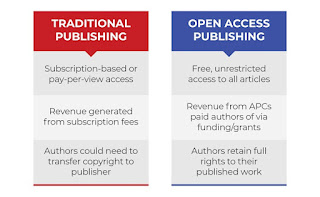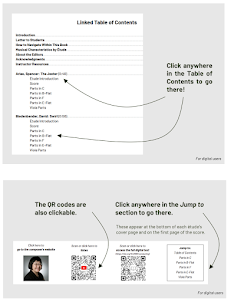By Tony Alves, Satam Choudhary and Joshua Routh, HighWire
Silver sponsor of the ALPSP Annual Conference and Awards 2023.
In an era of rapidly evolving technology and accelerating scientific progress, the promise of a democratized, inclusive, and borderless knowledge universe is becoming tangible, fuelled by two powerful movements - Open Science and Open Access.At its core, Open Science is the practice of making scientific research transparent and accessible to everyone, including open methodologies and open-source software to open data and public access to published work. Open Access is a key part of Open Science. It is a publishing model that enables scholarly publications to be made freely accessible, eliminating the barrier of paywalls.
These concepts emerged from the desire to democratize science and foster a global research community unbounded by financial and institutional barriers. Since the inception of the Budapest Open Access Initiative in 2002, the ultimate vision is one of a scientific ecosystem where knowledge isn't a privilege, but a communal asset. This dynamic promises to stimulate interdisciplinary innovation, enhance public comprehension, and light the way towards a more equitable future for global research.
In this blog post we’ll summarize the opportunities and tensions behind these initiatives, and show how Highwire supports them by supporting relevant publishing models on our platform.
Open Data: Unveiling the Power of Shared Knowledge
Open Data stands for the idea that data collected during research should be freely accessible, enabling anyone to explore, use, and benefit from it.
Unveiling the wealth of knowledge embedded in scientific data, not only enables researchers to build upon each other's work but also allows for innovative analyses and interpretations beyond the scope of the original study. The story of the Human Genome Project stands as a testament to the transformative power of Open Data. The initiative – started by our long-term partners at Cold Spring Harbor Laboratory – made genome sequences publicly available, igniting a surge of advancements in genomics, personalized medicine, and biotechnology.
However, the road to Open Data is not without hurdles. Researchers often grapple with data privacy issues, particularly in sensitive fields like healthcare. The lack of standardized formats and metadata can also lead to disorganized and hard-to-use data sets. Costs associated with maintaining accessible, reliable data also pose a significant challenge leading to innovative solutions such as Dryad, who we partner with to make data discoverable, freely reusable, and citable.
Open Access Books: Pioneering Free Access to Scholarly Literature
Beyond journal articles, the drive towards freely accessible scholarly literature has led to an upswing in Open Access Books. This shift acknowledges that academic knowledge can be encapsulated in many different forms of content, which was the driving force behind Highwire Hosting being the first platform to support any content type as a first class citizen. Books, for example, can be as dynamic and evolving as research papers and equally deserving of broad dissemination.
For authors, this publishing model presents a new avenue to share their work with a global audience, magnifying their reach and potential impact. Readers, especially those from resource-constrained regions, benefit from unrestricted access to vital scholarly works. For publishers, the journey toward Open Access Books is a delicate balance between championing knowledge dissemination and ensuring financial viability. Innovative models, like Knowledge Unlatched's crowd-funding approach, show promise in navigating these complexities.
Professional Societies & Open Access: Navigating the Currents
Professional societies play a crucial role in the scientific ecosystem, not just as gatekeepers of quality but also as proponents of community-specific issues, such as advocating for research in under-explored areas and policy changes based on scientific evidence.
However, their smaller scale, as compared to commercial publishers, presents unique challenges, particularly in the context of transitioning to Open Access. Challenges include:
- Financial Stability: Transitioning to Open Access implies moving away from a subscription-based revenue model which means devising financially sustainable Open Access models that can support their operations.
- Brand Value and Quality: Societies are often recognized for their quality publications. There may be apprehensions that moving to an Open Access model could dilute this perception of quality.
- Infrastructure and Expertise: Societies may lack the infrastructure for handling the Open Access publication process, from article processing charge (APC) management to copyright handling.
- Equity and Inclusivity: APCs can exclude authors with limited funding. Therefore, Societies must consider innovative models that ensure researchers from all backgrounds can participate.
As an independent organization, HighWire allows smaller societies to maintain independence from commercial publishers, while still providing industry-leading publishing tools.
Equitable Open Access Models: The Path to Inclusive Science
As the move toward open access accelerates, the conversation is shifting from "why" to "how." Many traditional models of Open Access present limitations in fostering inclusivity, especially among underrepresented or underfunded researchers. This gives rise to a critical question: How can we ensure equitable access not just for readers but also for authors?
There are several exciting models emerging in response to this need.
- "Read-and-Publish" agreements, where institutions pay a single, combined fee covering both the cost of reading and publishing for their researchers.
- "Subscribe to Open" model turns the traditional subscription model on its head; instead of subscribing to read, libraries subscribe to make a journal open for everyone.
- "Fee Waivers" offer reductions or waivers of APCs for authors from low-income countries and early-career researchers.
Closing Thoughts: How HighWire can Help
As we look ahead, the momentum of Open Science and Open Access is undeniable. They promise to shape a more inclusive and accessible world of scientific research. Nonetheless, we must remain conscious of the barriers that hinder the potential of Open Science and Open Access. HighWire Press is ready to help our publishing partners by providing independent publishing solutions that address the entire publishing lifecycle, from online submission and tracking, to multi-format content hosting, to enterprise-wide single sign on capabilities, to licensing management, to usage and impact analytics. There is no one-size-fits-all answer, and HighWire’s modularized solutions can help any size organization economically adapt to the open landscape.
If you're interested in learning more about how our modularized solutions can help your organization navigate the open landscape effectively, we invite you to drop us a line at info@highwirepress.com. Let's advance Open Science and Open Access together!
HighWire is a proud Silver sponsor of the ALPSP Annual Conference and Awards 2023.
About the authors
Tony Alves, Senior Vice-President, Product Management, HighWireTony Alves has worked in STM publishing since 1990 focusing on digital publishing, online learning products and workflow management. Tony is involved in promoting industry standardization, system-to-system communications protocols and other industry shared services. Tony serves as co-chair of the Manuscript Exchange Common Approach NISO Standing Committee. Tony has organized and presented sessions on industry standards, such as ORCID, CRediT, Funder ID, organizational IDs, JATS and BITS, as well as on interesting editorial services, such as similarity detection, artwork preflight, reference checking and linking, artificial intelligence for manuscript quality assurance, social media, and ethics.
Satam Choudhary, Senior Product Manager, HighWire
Satam Choudhury is Senior Product Manager for Analytics Products and Subscription Management system at HighWire. With over 10 years of experience in working on ERP and analytics, he likes to help publishers identify research trends underlying vast volumes of published content. He also led the team in building THINK Web, a new subscription management, BI and payment system for publishers. He is excited and worried about forthcoming product releases, and talks about them incessantly to anyone who meets him!Joshua Routh, Director of Hosting Products, HighWire
As the Director of Hosting Products, Joshua is responsible for ensuring our publishers' content is stored, enriched and presented effectively. He has worked closely with some of the world's most prestigious STM organisations for 15 years, including leading the team on numerous flagship products for the Cochrane Library, McGraw Hill, Oxford University Press and the British Medical Journal. He has a background in software engineering, a degree in digital design, and a passion for helping research content maximise its value.




























